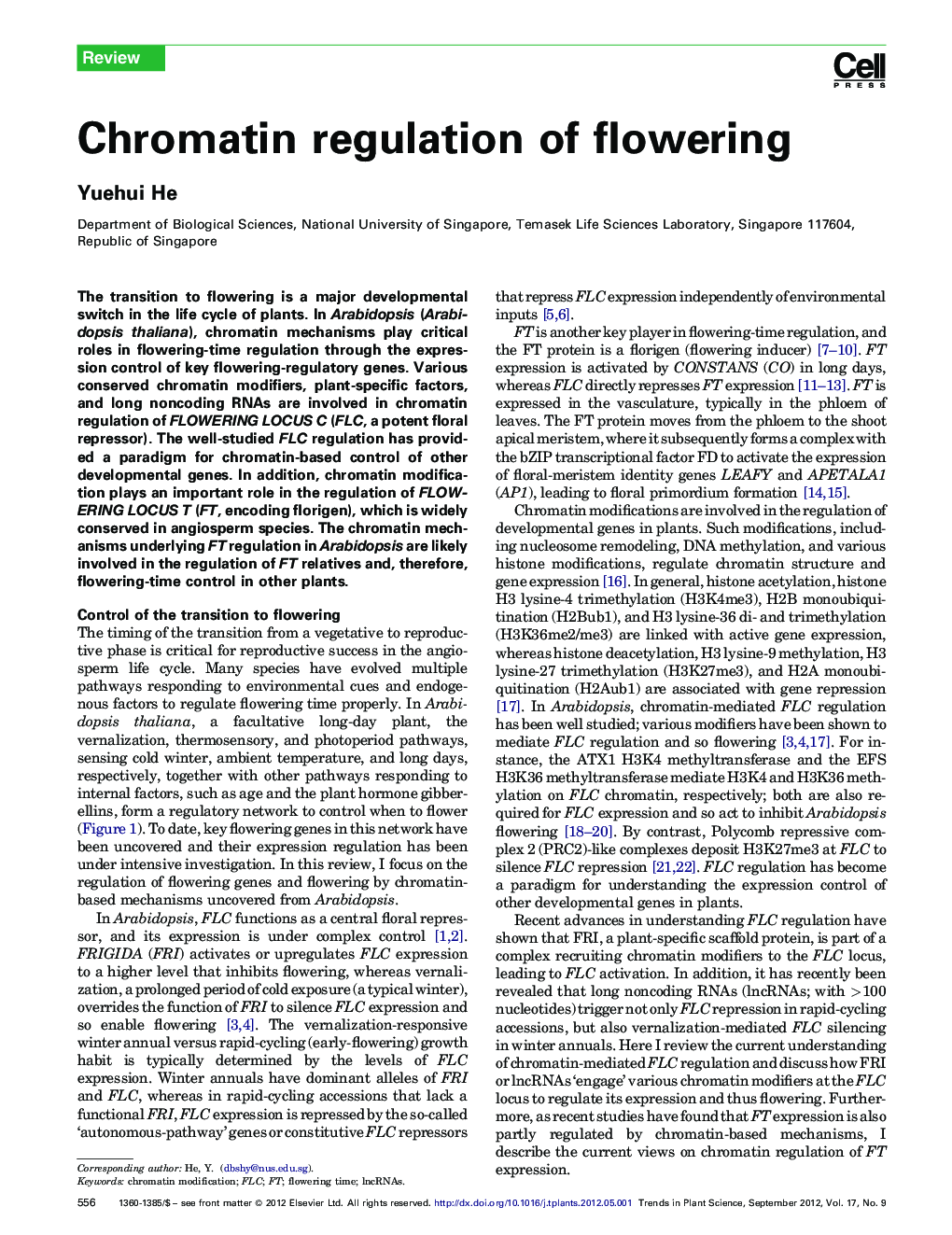| Article ID | Journal | Published Year | Pages | File Type |
|---|---|---|---|---|
| 2826323 | Trends in Plant Science | 2012 | 7 Pages |
The transition to flowering is a major developmental switch in the life cycle of plants. In Arabidopsis (Arabidopsis thaliana), chromatin mechanisms play critical roles in flowering-time regulation through the expression control of key flowering-regulatory genes. Various conserved chromatin modifiers, plant-specific factors, and long noncoding RNAs are involved in chromatin regulation of FLOWERING LOCUS C (FLC, a potent floral repressor). The well-studied FLC regulation has provided a paradigm for chromatin-based control of other developmental genes. In addition, chromatin modification plays an important role in the regulation of FLOWERING LOCUS T (FT, encoding florigen), which is widely conserved in angiosperm species. The chromatin mechanisms underlying FT regulation in Arabidopsis are likely involved in the regulation of FT relatives and, therefore, flowering-time control in other plants.
